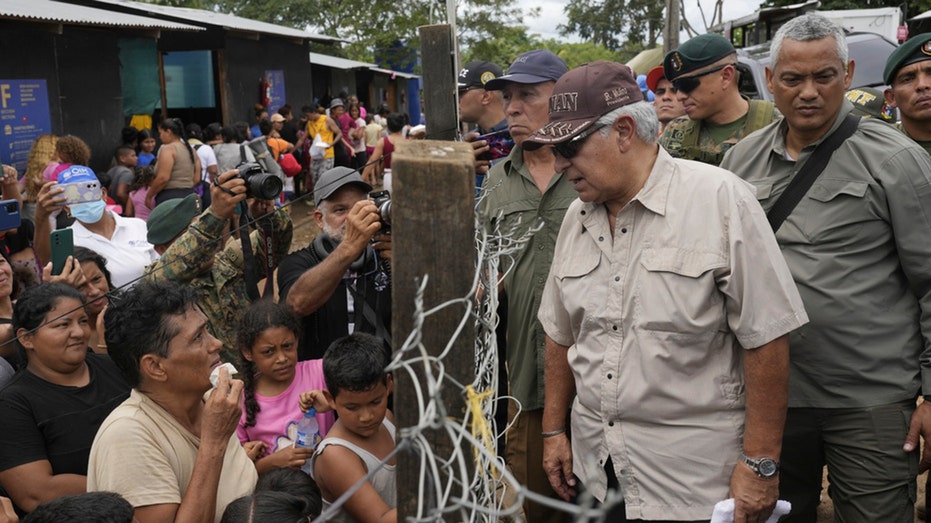The president of Panama says the ongoing migrant crisis in the Western Hemisphere is a “United States problem,” adding deportation flights that are partly funded by the U.S. are only voluntary.
“This is a United States problem that we are managing,” newly-elected President Jose Raul Mulino said Thursday. “People don’t want to live here in Panama. They want to go to the United States.”
Panama is a key crossing area for migrants moving north as many move through the Darien Gap, a massive jungle crossing Panama and Colombia that serves as a pathway through Central America and toward the U.S.
US TO PAY FOR FLIGHTS TO HELP PANAMA REMOVE MIGRANTS WHO MAY BE HEADING NORTH
The U.S. has worked with Panama and Colombia to try and limit crossings, including a 60-day campaign last year to address the humanitarian crisis.
The campaign aimed to end the illicit movement of people, open new “lawful and flexible pathways” for migrants and launch a plan to “reduce poverty, improve public service delivery, create jobs and promote economic and sustainable opportunities in border communities in northern Colombia and southern Panama, through international partnerships across financial institutions, civil society and the private sector.”
But over half a million migrants moved through Panama last year, and Mulino has vowed to make changes to solve the crisis and make Panama a less attractive destination. He had also vowed to increase deportations.
Earlier this month, the U.S. signed a memorandum of understanding that said the U.S. would pay for deportation flights and other assistance to help Panama deport migrants. The efforts to send some migrants back to their homelands “will help deter irregular migration in the region and at our southern border and halt the enrichment of malign smuggling networks that prey on vulnerable migrants,” a U.S. spokesperson said.
However, Mulino clarified this week that the only migrants who will be returned are those who agree to do so.
If migrants don’t want to return to their countries, “then they’ll go (to the U.S.). I can’t arrest them. We can’t forcibly repatriate them.”
The Biden administration has emphasized the importance of foreign relations and cooperation as part of its strategy to reduce border crossings, which have exploded under its watch as the border crisis remains a top political issue in the U.S.
Republicans have blamed the Biden administration’s rolling back of Trump-era policies and have accused it of incentivizing migration due to “open border” policies.
The administration has said it needs funding and reforms by Congress, which it has so far failed to deliver. But it has recently pointed to reduced numbers since President Biden announced an executive order limiting crossings and increasing asylum interview standards.
MIGRANT NUMBERS CROSSING DARIEN GAP SET NEW RECORD, DESPITE US EFFORTS
Since June, encounters have dropped more than 50%, and the number of releases has decreased by 70%. Officials also say the administration has removed and returned more than 50,000 individuals to more than 100 countries.
In his comments to the press, Mulino said he hopes upcoming Venezuelan elections could also help.
“Practically all of Venezuela is walking through there every day,” Mulino said. “If the elections in that country are carried out properly, respecting the popular will regardless of who wins, I’m sure that that number will go down.”
The Associated Press contributed to this report.
























